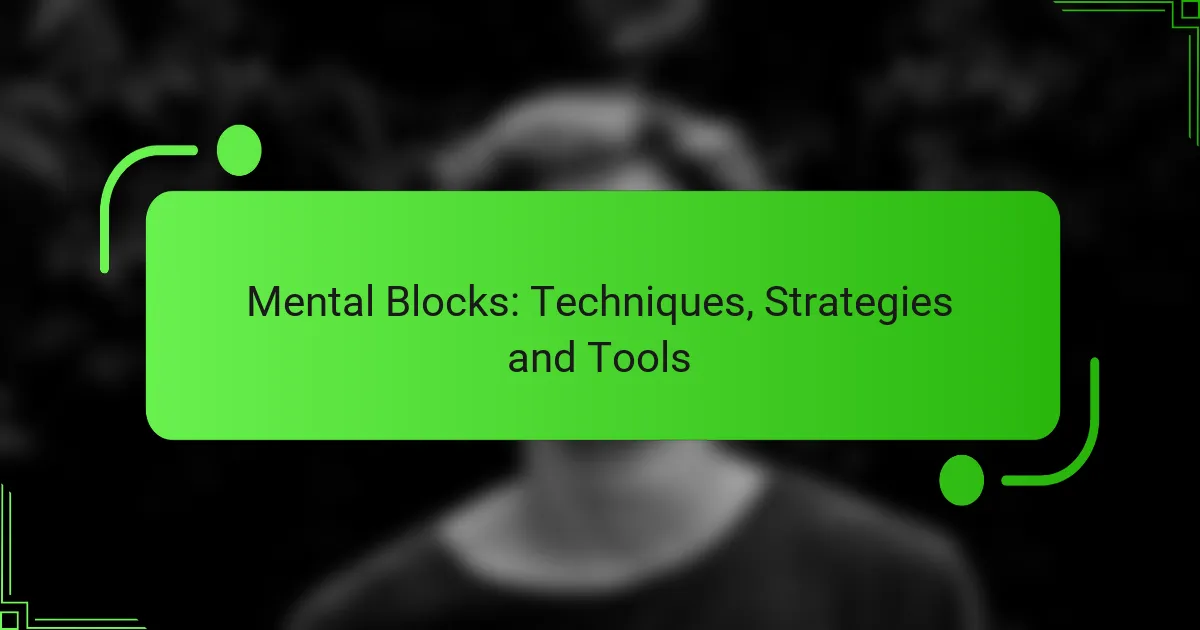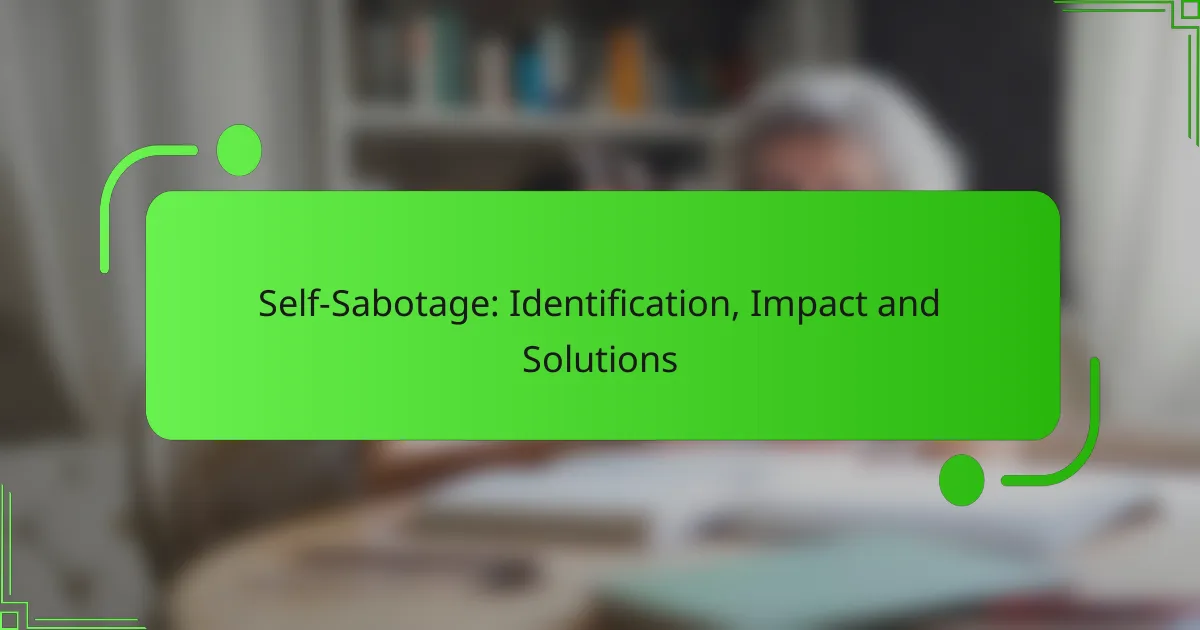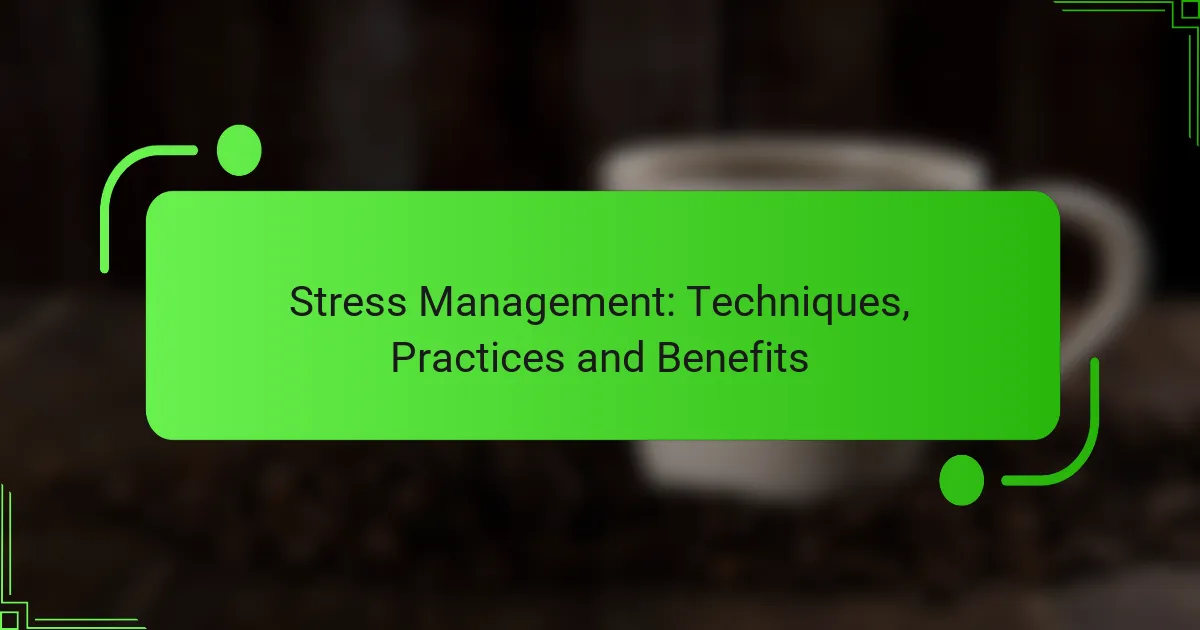Mental blocks can hinder creativity and focus, but various techniques and strategies can help individuals overcome these challenges. Approaches such as mindfulness meditation, cognitive behavioral therapy, and physical activity can enhance mental clarity and foster a more productive mindset. By employing specific tools and methods, individuals can effectively break through these barriers and unlock their full potential.

What techniques can overcome mental blocks?
Several techniques can effectively overcome mental blocks, helping individuals regain focus and creativity. These methods include mindfulness meditation, visualization exercises, journaling prompts, physical activity, and time management strategies, each offering unique benefits for mental clarity.
Mindfulness meditation
Mindfulness meditation involves focusing on the present moment, which can help clear mental clutter and reduce anxiety. Practicing for just a few minutes daily can enhance awareness and improve concentration.
To start, find a quiet space, sit comfortably, and focus on your breath. If your mind wanders, gently bring your attention back to your breathing. Aim for sessions of 5-15 minutes, gradually increasing as you become more comfortable.
Visualization exercises
Visualization exercises can help individuals mentally rehearse scenarios, reducing anxiety and enhancing performance. This technique involves imagining a successful outcome, which can boost confidence and creativity.
To practice, close your eyes and vividly picture yourself achieving a goal or overcoming a challenge. Engage all your senses in the visualization, and spend 5-10 minutes on this exercise regularly for best results.
Journaling prompts
Journaling prompts can stimulate thought and reflection, helping to identify the root causes of mental blocks. Writing about your feelings and experiences can clarify your thoughts and foster problem-solving.
Consider prompts like “What is currently blocking my progress?” or “What steps can I take to overcome this challenge?” Spend 10-20 minutes writing in response to these prompts several times a week.
Physical activity
Engaging in physical activity can significantly improve mental clarity and reduce stress. Exercise releases endorphins, which can enhance mood and cognitive function, making it easier to tackle mental blocks.
Incorporate at least 30 minutes of moderate exercise, such as walking, jogging, or yoga, into your daily routine. Even short bursts of activity can provide immediate mental relief and clarity.
Time management strategies
Effective time management strategies can help prioritize tasks and reduce overwhelm, which often contributes to mental blocks. Techniques like the Pomodoro Technique or time blocking can enhance productivity and focus.
Try breaking your work into focused intervals of 25 minutes followed by a 5-minute break. This method can help maintain concentration and prevent burnout, ultimately allowing for clearer thinking and creativity.

How can cognitive behavioral therapy help?
Cognitive behavioral therapy (CBT) can effectively address mental blocks by helping individuals identify and change negative thought patterns. This therapeutic approach focuses on the connection between thoughts, feelings, and behaviors, enabling people to develop healthier coping strategies.
Identifying negative thought patterns
Recognizing negative thought patterns is the first step in overcoming mental blocks. Common patterns include all-or-nothing thinking, overgeneralization, and catastrophizing. By keeping a thought diary, individuals can track their thoughts and identify recurring negative themes.
Once identified, these patterns can be challenged. For instance, if someone believes they will always fail at a task, they can look for evidence of past successes to counter that belief. This process helps in developing a more balanced perspective.
Reframing limiting beliefs
Reframing limiting beliefs involves shifting the perspective on negative thoughts to foster a more positive mindset. This can be done by questioning the validity of these beliefs and considering alternative viewpoints. For example, instead of thinking “I can’t do this,” one might reframe it as “I can learn how to do this with practice.”
Practicing positive affirmations and visualizations can further reinforce these new beliefs. Setting small, achievable goals can also help build confidence and demonstrate that change is possible. Regularly revisiting and adjusting these beliefs is crucial for long-term improvement.

What tools assist in breaking mental blocks?
Several tools can effectively help in breaking mental blocks by enhancing focus, organizing thoughts, and managing time. Utilizing these resources can lead to improved productivity and creativity.
Focus@Will music service
Focus@Will is a music service designed specifically to improve concentration and reduce distractions. It offers a variety of music channels tailored to different work styles, which can help maintain focus during tasks.
To use Focus@Will effectively, select a channel that resonates with your working style, whether you prefer classical, ambient, or acoustic sounds. Many users find that listening for 60-90 minutes enhances their productivity significantly.
Pomodoro Technique apps
Pomodoro Technique apps help manage time effectively by breaking work into intervals, typically 25 minutes long, followed by short breaks. This method can help maintain focus and prevent burnout.
Popular apps include Focus Booster and Pomodone, which allow users to track their sessions and breaks easily. Consider setting a timer for 25 minutes, then take a 5-minute break to recharge before starting the next session.
Mind mapping software
Mind mapping software assists in visualizing ideas and organizing thoughts, making it easier to overcome mental blocks. Tools like MindMeister or XMind allow users to create diagrams that represent concepts and their relationships.
When using mind mapping software, start with a central idea and branch out with related thoughts. This visual representation can clarify complex topics and stimulate new ideas, making it easier to progress on projects.

What are the common causes of mental blocks?
Mental blocks can arise from various psychological and situational factors that hinder productivity and creativity. Understanding these causes is essential for developing effective strategies to overcome them.
Fear of failure
The fear of failure is a significant contributor to mental blocks, as it creates anxiety about the potential negative outcomes of one’s efforts. This fear can lead to procrastination or avoidance of tasks altogether, making it difficult to move forward.
To combat this fear, try reframing failure as a learning opportunity rather than a setback. Set realistic expectations and remind yourself that mistakes are part of the growth process.
Perfectionism
Perfectionism can create mental blocks by setting unattainably high standards that are often impossible to meet. This mindset can lead to excessive self-criticism and a paralyzing fear of not achieving perfection.
To manage perfectionism, focus on progress rather than perfection. Break tasks into smaller, manageable steps and celebrate small achievements to build confidence and reduce the pressure to be flawless.
Overwhelm from multitasking
Multitasking can lead to mental blocks by overwhelming the brain with too many simultaneous demands. This can reduce focus and efficiency, making it harder to complete tasks effectively.
To minimize overwhelm, prioritize tasks and focus on one at a time. Use techniques like the Pomodoro Technique, where you work in short bursts followed by breaks, to maintain concentration and reduce stress.

How does environment impact mental blocks?
The environment plays a significant role in creating or alleviating mental blocks. Factors such as workspace organization, noise levels, and overall ambiance can either hinder focus and creativity or promote a productive mindset.
Cluttered workspace effects
A cluttered workspace can lead to increased distractions and mental fatigue, making it difficult to concentrate on tasks. Studies suggest that visual clutter can overwhelm the brain, reducing cognitive function and creativity.
To mitigate the effects of a messy environment, aim for a clean and organized workspace. Regularly declutter your desk and remove unnecessary items to create a more focused atmosphere. Consider using storage solutions to keep essential tools accessible yet out of sight.
Noise level influences
Noise levels in your environment can significantly impact your ability to concentrate and overcome mental blocks. High noise levels may lead to stress and hinder cognitive performance, while a quieter setting can enhance focus and creativity.
To optimize your workspace, assess the noise levels and consider using soundproofing techniques or noise-canceling headphones. If complete silence is not feasible, soft background music or white noise can help create a more conducive environment for concentration.

What role does self-care play in overcoming mental blocks?
Self-care is crucial for overcoming mental blocks as it helps to restore mental clarity and emotional balance. Engaging in self-care practices can reduce stress, enhance focus, and improve overall well-being, making it easier to tackle challenges and creative tasks.
Understanding self-care
Self-care encompasses activities and practices that individuals engage in to maintain and enhance their physical, mental, and emotional health. It can include simple actions like taking breaks, engaging in hobbies, or practicing mindfulness. Recognizing the importance of self-care is the first step toward effectively managing mental blocks.
Types of self-care strategies
There are several types of self-care strategies that can help alleviate mental blocks. These include physical self-care, such as regular exercise and proper nutrition; emotional self-care, like journaling or talking to a friend; and mental self-care, which may involve engaging in puzzles or learning new skills. Each type addresses different aspects of well-being and can be tailored to individual needs.
Practical self-care tips
To effectively incorporate self-care into your routine, consider setting aside specific times for these activities. Aim for at least 30 minutes a day for physical exercise and schedule regular breaks during work to recharge. Avoid multitasking, as it can lead to increased stress and hinder productivity. Remember, consistency is key; small, regular self-care practices can lead to significant improvements over time.



